BY JENNIFER ZENG
November 15, 2018 Updated: November 15, 2018
WASHINGTON-The Chinese Communist Party (CCP)’s coordinated and long-term efforts to become a dominant global power have put at risk the national security and economic interests of the United States, its allies, and its partners, and U. S. policy makers have difficult decisions to make based on the new reality, according to the annual report to the Congress by the U.S.-China Economic and Security Review Commission (USCC).
Released on Nov. 14, the 525-page report addresses issues in 4 sectors: U.S.-China economic and trade relations, U.S.-China security relations, China and the world, and China’s high-tech development.
Michael Wessel, who has been a commissioner ever since USCC was created in October 2000, said the 2018 report is “evolutionary.”

L-R: Commissioner Micheal McDevitt, Commissioner Katherine Tobin, Vice Chairman Carolyn Bartholomew, Chairman Robin Cleveland, Commissioner Glenn Hubbard, Commissioner Roy Kamphausen, and Commissioner Larry Wortzel attending the roll out of the U.S.-China Economic and Security Review Commission report in the Hart Office Building in Washington on Nov. 14, 2018. (Jennifer Zeng/The Epoch Times)
“Many of the concerns that we have raised continue to evolve,” he said. “We now see that the public policy system is caught up in part to the assessments we’ve been making for a number of years.
“This year is really about doubling down in terms of the assessment and looking at other tools that can be used to address the challenges we face.”
In the introduction to the report, its authors said: “For several decades, U.S. policy toward China was rooted in hopes that economic, diplomatic, and security engagement would lay the foundation for a more open, liberal, and responsible China. Those hopes have, so far, proven futile.”
“Many of those who supported China’s accession to the World Trade Organization believed economic growth would raise the quality of life for the Chinese people, but hoped it would also deepen reform and perhaps eventually spark political liberalization. The opposite has happened, ” the introduction says.
“The CCP has used economic growth—coupled more recently with its anticorruption campaign—to strengthen its own grasp on authority, advance its state-capitalist model, buttress authoritarian governments abroad, leverage its market against other nations, and fund a massive buildup of Chinese military power to intimidate and silence its neighbors.”
The report also finds that China’s economic liberalization has stalled and many reforms have been reversed. It also describes the damage done U.S. companies and the U.S. economy.

This handout image provided by Chinese tech company Huawei shows a giant artificial intelligence-powered Rubiks Cube in London, England on Oct. 25, 2018. (Tom Nicholson/Huawei via Getty Images)
“Foreign companies hoping to participate in China’s market must pay a high price for admission, transfer technology, and suffer regulations that tilt the playing field in favor of their Chinese competitors. U.S. companies, inventors, and workers have witnessed the damaging impact of China’s trade-distorting policies in curtailed exports, stolen intellectual property, and dumped products flooding the U.S. market. ”
Security Relations
With U.S.-China security relations, the report notices that China has increased its efforts to build a “world-class” military and to advance its sovereignty claims over disputed territory.
“By 2018, leaders of the U.S. Indo-Pacific Command, U.S. Navy, and U.S. Air Force have all publicly referred to China’s military as a ‘peer Competitor’ in certain scenarios,” the report says.
“In word and deed, the CCP has abandoned any inclination for economic and political liberalization. Rather than promoting fair trade and investment, China engages in predatory economic practices.
“Rather than providing development finance in line with established rules, China provides loans and investment in nontransparent ways on projects that do not always meet global governance standards and pass tests of commercial viability,” the report concludes.
“Rather than respecting other countries’ sovereign rights, China is altering the status quo in the Indo- Pacific and has publicly congratulated itself on its militarization of the South China Sea.
“Rather than promoting the free flow of information and human rights at home and abroad, China is doubling down on censorship and technologically-enabled repression, including against China’s Uyghur ethnic minority population.”
When discussing the “Belt and Road Initiative (BRI)”, which is referred to by the CCP as the “project of the century” and was even written into China’s constitution, the report finds, “BRI could pose a significant challenge for U.S. interests and values because it may enable China to export its model of authoritarian governance and encourages and validates authoritarian actors abroad.”
Influence Efforts
When discussing China’s relations with U.S. allies and partners, the report mentions that “Beijing has intensified its influence efforts using an expanding array of tools, often to the detriment of the United States and its relationships with important allied and partner countries…Beijing’s use of these influence instruments aims to weaken opposition to China’s policies and undermine and subvert U.S. alliances and partnerships. If successful, these efforts could fundamentally weaken the United States’ ability to support democracy and international law.”
The report uses one full chapter to discuss China’s high-tech development in next generation connectivity, and finds that “the Chinese government seeks to overtake the United States in these industries to gain a higher share of the economic benefits and technological innovation.
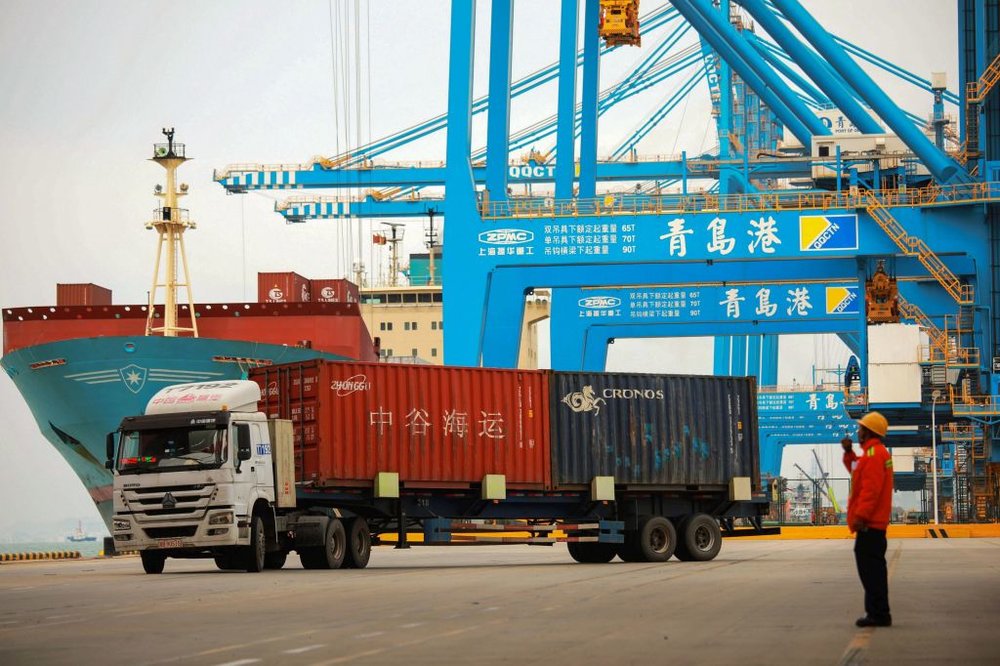
A staff member watches over a truck as he talks on his interphone at a port in Qingdao, in east China’s Shandong Province on Nov. 8, 2018. (STR/AFP/Getty Images)
“Chinese firms have already leveraged strong state support to become global leaders in information technology and network equipment manufacturing, and have strengthened their roles in international standards-setting and deployment of 5G, ” the report says.
The report warns against not only about the possibility of loss of economical and market opportunities, but also the security risks the U.S. would suffer if it cannot catch up in these areas.
“The lax security protections and universal connectivity of Internet of Things (IoT) devices create numerous points of vulnerability that hackers or malicious state actors can exploit to hold U.S. critical infrastructure, businesses, and individuals at risk. These types of risks will grow as IoT devices become more complex, more numerous, and embedded within existing physical structures.”
Recommendations
To tackle all the challenges, the report lays out 26 recommendations, identifying the following as key:
-
Preparing an annual report to Congress to ensure supply chain vulnerabilities from China are adequately addressed;
-
Examining whether the Office of the U.S. Trade Representative should bring, in coordination with U.S. allies and partners, a “non-violation nullification or impairment” case—alongside violations of specific commitments—against China at the World Trade Organization;
-
Examining the application of current U.S. laws to prosecuting Chinese Communist Party affiliates who threaten, coerce, or otherwise intimidate U.S. residents, clarifying that labels required by the Foreign Agents Registration Act on informational materials disseminated on behalf of foreign principals, such as China Daily, must appear prominently at the top of the first page of such materials;
-
Producing a National Intelligence Estimate (NIE), with a classified annex, that details the impact of existing and potential Chinese access and basing facilities along the Belt and Road on freedom of navigation and sea control, both in peacetime and during a conflict;
-
Producing an unclassified annual report, with a classified annex, on the Chinese Communist Party’s influence and propaganda activities in the United States;
-
Providing a report, with a classified annex, assessing how the change in the China Coast Guard’s command structure affects its status as a law enforcement entity now that it reports to the Central Military Commission.
-
Identifying (1) steps to ensure the rapid and secure deployment of a 5G network, with a particular focus on the threat posed by equipment and services designed or manufactured in China; and (2) whether any new statutory authorities are required to ensure the security of domestic 5G networks.
-
Conducting an assessment of U.S.-China collaborative initiatives in technical cooperation.
-
Providing a report within 180 days on the current state of Chinese enforcement of sanctions on North Korea.
-
Identifying the trade-distorting practices of Chinese state-owned enterprises and develop policies to counteract their anticompetitive impact.
Source: https://www.theepochtimes.com/report-hopes-that-guided-us-china-policy-proven-futile_2716979.html
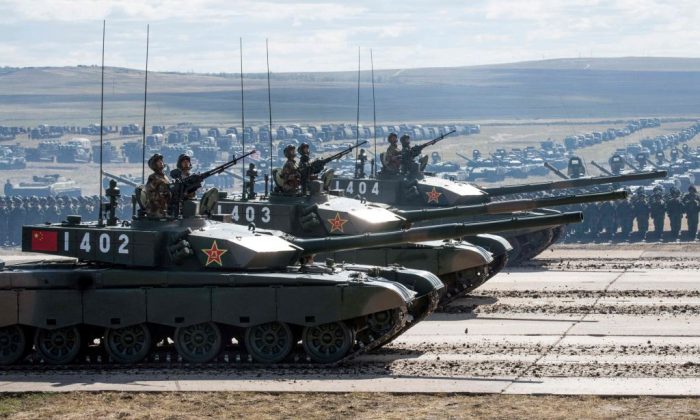
Chinese tanks parade not far from the borders of China and Mongolia in Siberia, on Sept. 13, 2018. (MLADEN ANTONOV/AFP/Getty Images)








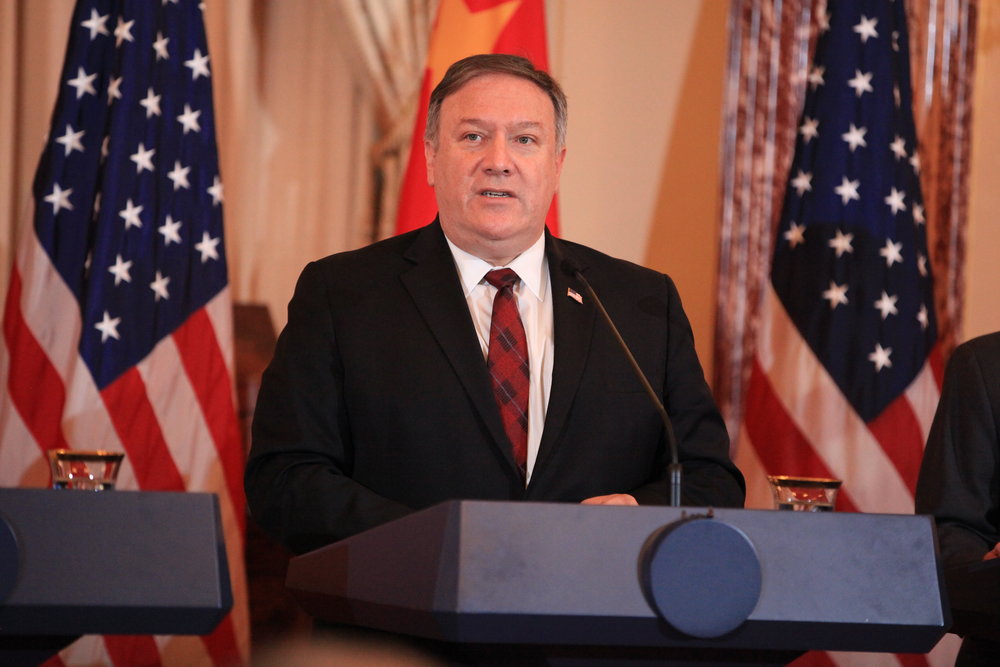
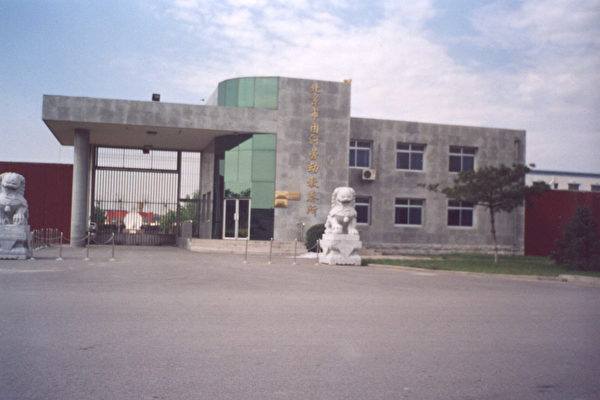
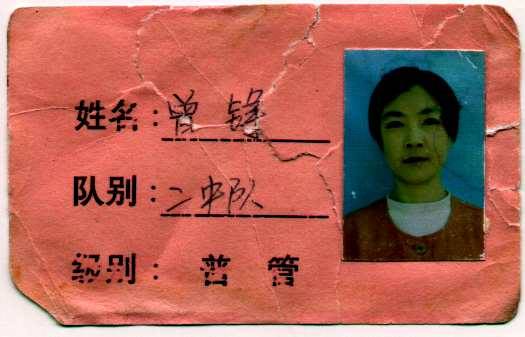

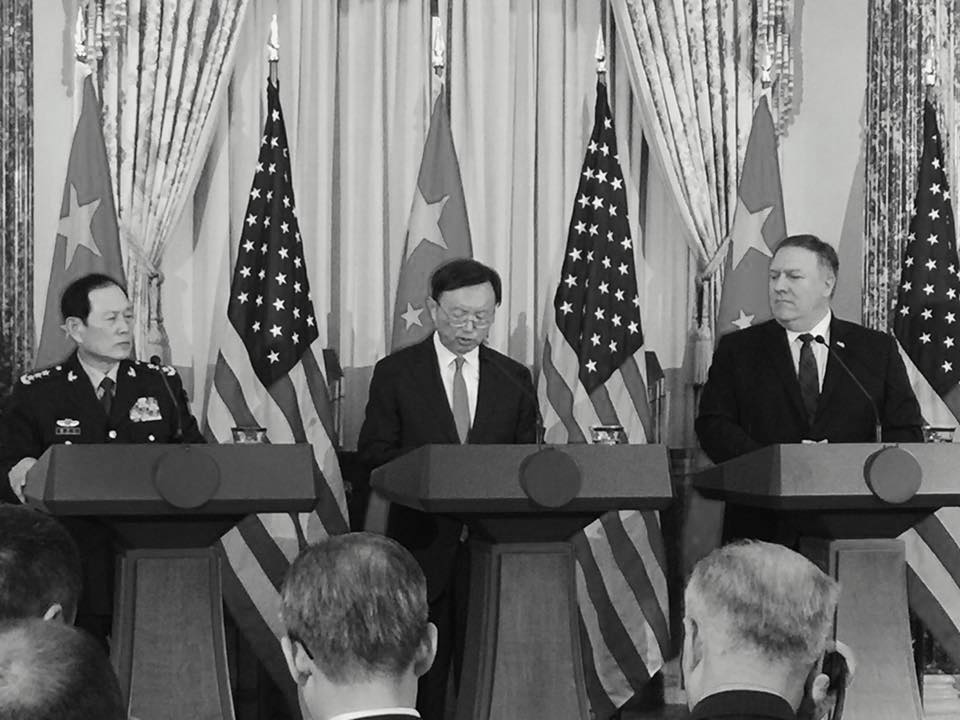
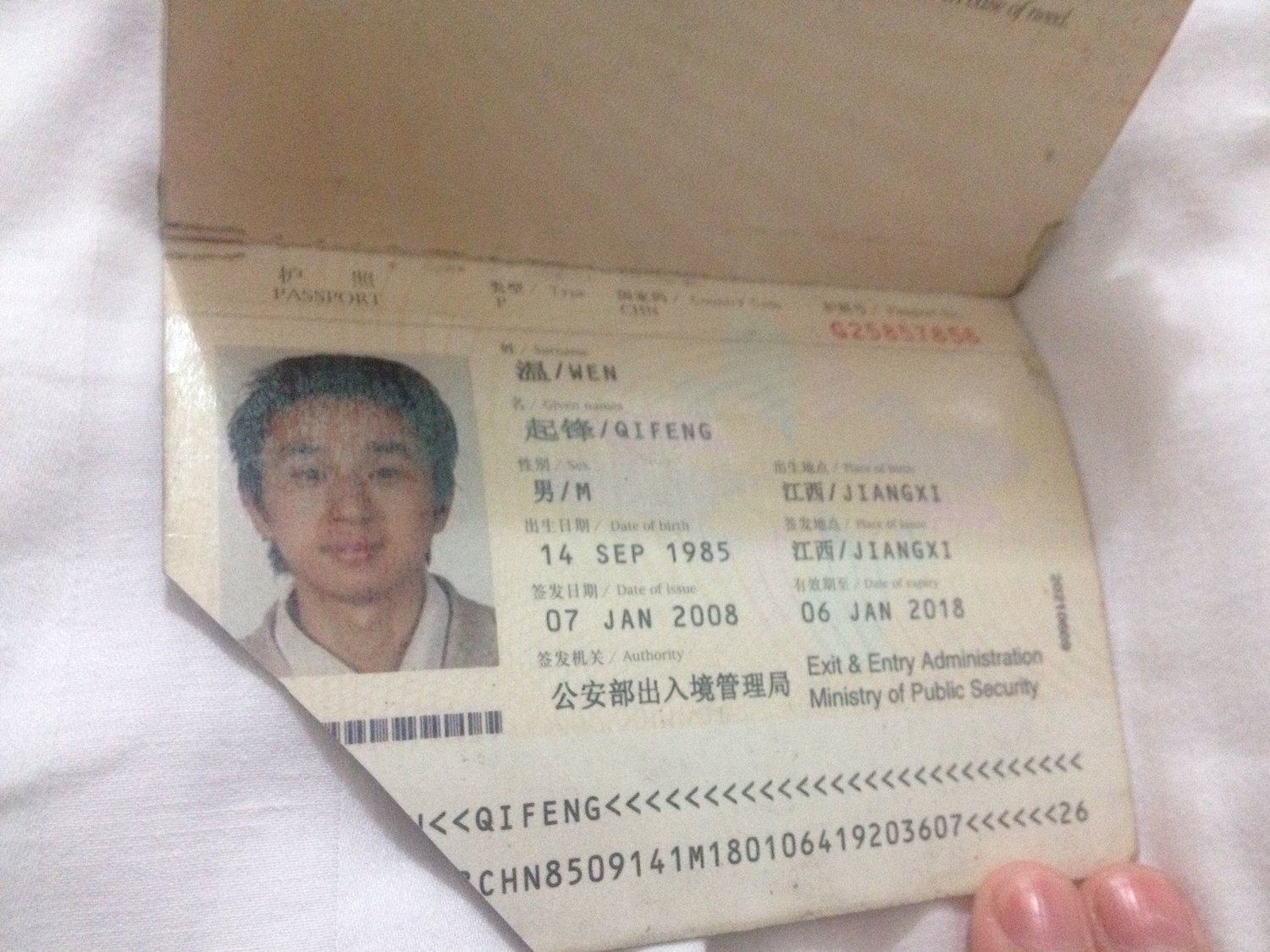
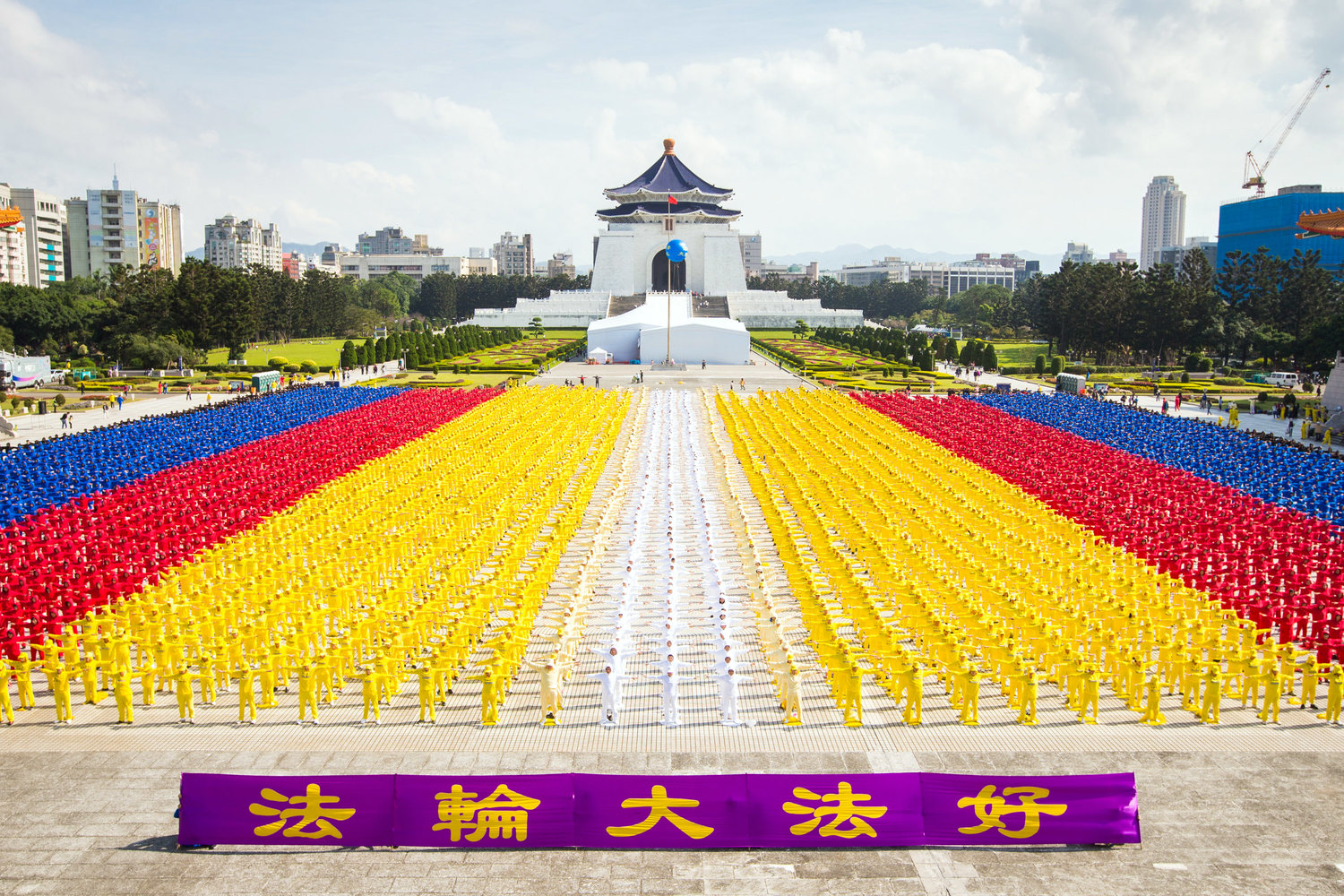

反饋選登:讀《楊潔篪魏鳳和與黨媒在美國演的雙簧戲》
就曾錚《楊潔篪魏鳳和與黨媒在美國演的雙簧戲》一文,讀者James Lee反饋之一:
這種擺拍的中共模式記者會,在西方民主社會,對享有第四權的記者,是重大污辱與對民眾知情權、記者專業的褻瀆,只要發現有一件提前套好招的提問,西方記者應全數退席抗議。否則就成了背書他國政治代理人的宣傳工具。
中共官員來到西方,要讓他們與西方開放民主環境接軌,而不是讓他們把中國那套詐欺手法搬到國外。如果他們辦不到,就不要開記者會,直接發新聞稿就好,不要浪費記者寶貴時間、社會新聞資源。
西方自由媒體有責任捍衛新聞專業價值,不受侵害。
James Lee反饋之二:
這種掛名記者會的大外宣,充滿欺騙性,在西方社會破壞新聞專業標準與挖掘真相的本質。另一個方面,西方記者或許沒有留意的是,中共的【出口轉內銷】,中共在中國境內可利用國際媒體的聲譽來為其背書,讓中國民眾誤以為西方社會也接受中共那一套,配合畫面剪接、斷章取義,西方記者等於參加了為中共塗脂抹粉,證明其國際地位的楚門秀。或者將記者嚴謹的質疑提問,扭曲成對中國的敵意,加重幾十年潛台詞套路“亡我之心不死”的觀眾仇恨心理,進一步分化中國人與西方世界的隔閡,讓中國人更愛國(實際是更愛黨),認為是黨將中國帶向國際、讓中國人揚眉吐氣有面子、黨為中國人遭受到國際社會的攻擊、黨在記者會上教訓西方記者等等,種種加深中國人「錯愛」與「英雄崇拜」的民粹操作。
這種不對等的新聞環境,在中共以中國市場與記者證簽發的威脅下,西方媒體與記者,似乎並沒有發出應有的高嚴重級別程度的譴責,而是無可奈何的默認。
如果新聞自由是西方新聞從業人員奉以為圭臬,至高無上的信仰,那麼,與中美貿易戰的核心價值一樣:【平等】,應是西方社會對中國全面開放新聞自由的最起點的要求。至少自由採訪不受干擾破壞,是第一步。
抨擊、監督中共在中國的輿論操作,能否像針對中共剽竊美國智財、不遵守貿易規則一樣,能有類似301的懲罰制裁條款,與相對應的專業搜證、評核單位。把中國的新聞專業,以西方標準加以監督,提出例證、報告。有賴西方重視、討論。中國網民時而在推特上有打臉中共官媒的po文,視聽人看了經常對中共厚顏無恥、顛倒黑白瞠目結舌。若西方能提出專業、即時的糾錯平台,對中國民眾與世界人民了解中共醜惡造假文化,將有莫大助益。
新聞戰,應是美方具有道德正義、有利施壓的突破口。
大紀元網友【跟評】發表時間: 2 天以前
有趣。把「殃视」的老底揭了一下!
大紀元網友【跟評】發表時間: 2 天以前
正確來說,共搶黨的記者是被來自魔鬼的看不見的長繩牽著在動
大紀元網友【跟評】發表時間: 2 天以前
在大陆这样做已经习以为常了,那些成天看的早已不知什么叫新闻了,反正不管国内多少电视台到那时间统统一个节目,一个声音。
大紀元網友【跟評】發表時間: 2 天以前
这种所谓对话究竟解决了什么问题?如果不解决问题,倒不如不对话的好!
大紀元網友【跟評】發表時間: 2 天以前
这其实是中共内部「外行领导着内行」的一个信号。这样贸易战拖下去或许反而对美国更有利。希望特朗普能抓住机会。
大紀元網友【跟評】發表時間: 2 天以前
作為記者呢不管是中西方,出去採訪時都會有預先的草稿,要採訪什麼要做什麼樣的報道,心中都是有數的。只不過,西方記者是做採訪準備,而中共是做樣板規矩限制記者的自由報道。
西方記者採訪回來後,會自己組稿,也會扔給編輯組稿,但最終成文不一定和草稿方向一樣,都會根據採訪到的具體內容,比如抓到很有價值的內容後,會從新組稿寫有價值的新聞。而中共就是套好了草稿不敢越過規定。一越就犯了“政治錯誤”,就把要掩蓋的東西給曝光了。为了不曝光,就只能演戏了。
中共的记者每次遇到别人批评他们这一点,就都说这是行业的正常运作,西方也这样。可是,出发点是根本不同的,这就决定了最终的结果 大相径庭。
大紀元網友【跟評】發表時間: 2 天以前
中共官员假大空的小丑表演,太低下了。
大紀元網友【跟評】發表時間: 2 天以前
中共恶魔最怕真相,真相是照妖镜使得恶魔现了原形。
圖:新聞發布會上的記者。(曾錚現場攝影)